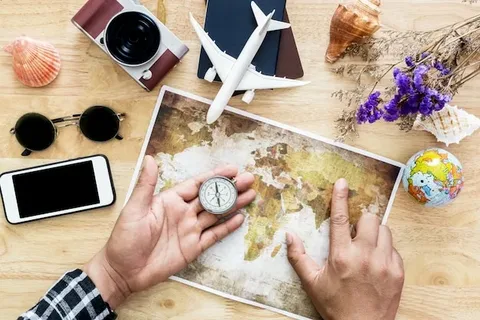Planning the Perfect Hunting Trip: Essential Tips for a Memorable Experience

For many outdoor enthusiasts, a hunting trip offers an exciting escape from daily routines and a chance to reconnect with nature. Whether you’re a seasoned hunter or preparing for your first adventure, a successful hunting trip requires more than just grabbing your gear and heading into the wilderness. Proper planning, research, and preparation can make all the difference between a frustrating experience and an unforgettable adventure.
Know the Laws and Regulations
Before you even start planning your hunting expedition, it’s crucial to understand the local hunting laws and regulations. Different states and regions have specific rules regarding hunting seasons, permitted species, licensing requirements, and equipment restrictions. Failing to comply with these regulations can lead to hefty fines, legal trouble, or worse — jeopardizing wildlife conservation efforts.
Always check the official wildlife agency websites for the area you plan to visit. Obtain the necessary licenses and tags, and familiarize yourself with the rules to ensure your trip remains legal and ethical.
Choose the Right Location
Selecting the right hunting location significantly impacts your chances of success. Start by researching areas known for abundant game populations and accessible hunting grounds. Public lands, private hunting reserves, and national forests all offer different opportunities, each with its own advantages.
For those unfamiliar with specific hunting regions, online platforms and hunting forums can be invaluable resources. You can connect with experienced hunters, read reviews, and gain insight into the best spots for your preferred type of game.
Understand Your Target Species
Every animal species behaves differently, and understanding your target species increases your odds of success. Study their habits, preferred habitats, feeding patterns, and movement routines. The more you know about the game you’re pursuing, the better you can strategize your approach.
Whether you’re after deer, elk, turkey, or small game, learning to read signs such as tracks, droppings, or bedding areas will help you locate them efficiently. Patience and observation are key components of successful hunting.
Prepare the Right Gear
Your gear can make or break your hunting experience. The essentials include:
- Firearm or Bow: Choose the appropriate weapon for the type of game and your skill level. Ensure it’s properly maintained and sighted in before your trip.
- Clothing: Dress in layers and select weather-appropriate, camouflaged clothing. Consider scent-control garments to minimize human odor.
- Hunting Accessories: Optics like binoculars or scopes, a reliable knife, game calls, and scent attractants can all enhance your effectiveness in the field.
- Safety Gear: Don’t forget items like a first-aid kit, GPS device, map, flashlight, and communication tools. Safety should always be a top priority.
Make a checklist well in advance to avoid forgetting critical items.
Physical and Mental Preparation
Hunting often demands physical endurance, especially when trekking through rugged terrain or carrying equipment for extended periods. Engage in regular exercise leading up to your trip to build stamina and strength.
Mental preparation is equally important. Hunting requires patience, focus, and resilience. Spending hours in challenging weather conditions with no immediate success can be frustrating. However, maintaining a positive attitude and staying alert can improve your experience and performance.
Respect Wildlife and Nature
Responsible hunting involves more than pursuing game; it’s about respecting the environment and practicing ethical hunting. Follow the principles of fair chase, avoid waste, and ensure you harvest only what you need.
Additionally, leave no trace. Clean up after yourself, respect property boundaries, and contribute to conservation efforts by supporting wildlife organizations or participating in habitat restoration programs.
Final Thoughts
A well-planned hunting trip offers more than the thrill of the hunt. It’s an opportunity to disconnect from technology, reconnect with nature, and create lifelong memories with friends or family. By thoroughly preparing, respecting the land, and following ethical practices, you can ensure a safe, successful, and enjoyable hunting adventure.



